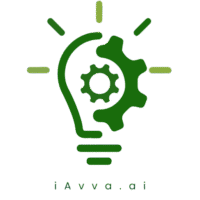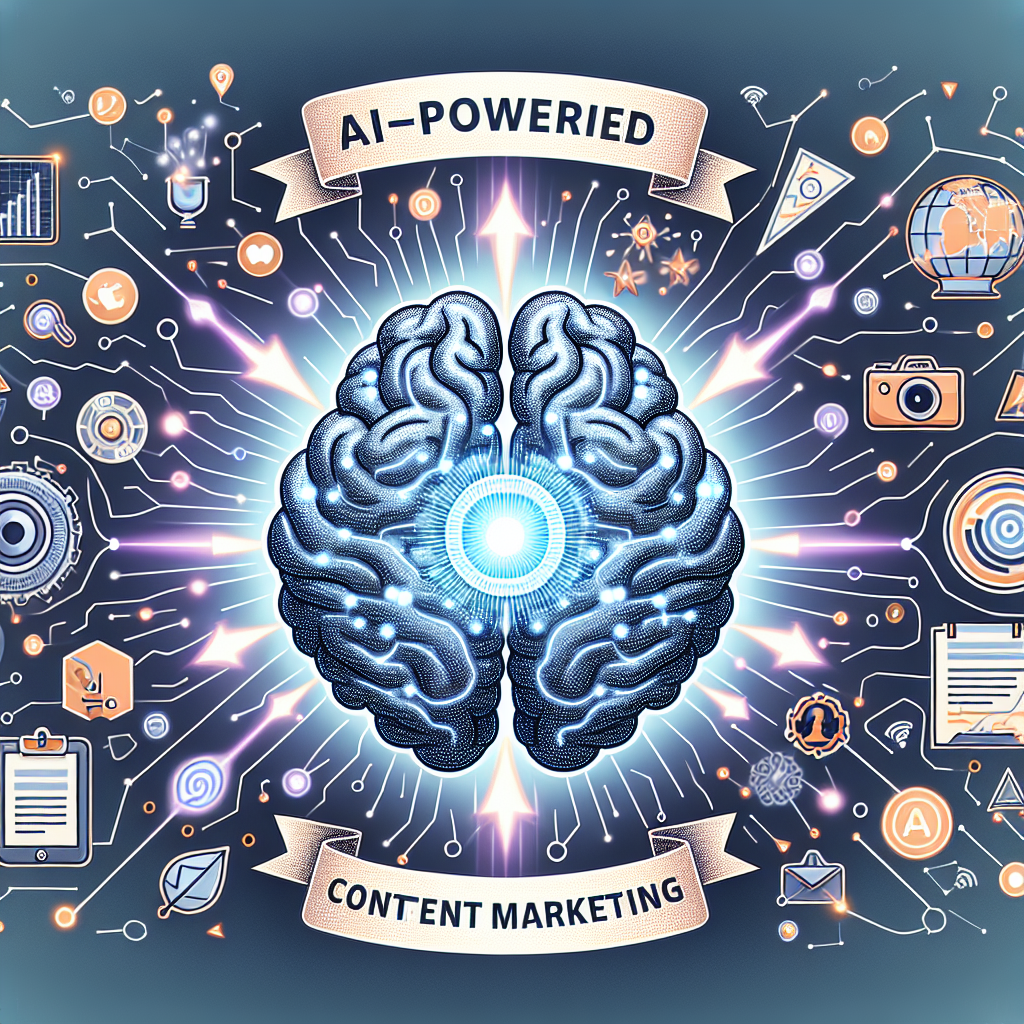The advent of artificial intelligence (AI) has ushered in a transformative era across various sectors, and coaching is no exception. As we delve into the impact of AI on coaching, it becomes evident that this technology is not merely a tool but a catalyst for profound change. Coaches are now equipped with sophisticated algorithms that can analyze client behavior, preferences, and progress in ways that were previously unimaginable.
This capability enables a more nuanced understanding of individual needs, allowing coaches to tailor their approaches with precision. The integration of AI into coaching practices is not just about efficiency; it’s about enhancing the quality of the coaching experience itself. Moreover, AI’s ability to process vast amounts of data in real-time means that coaches can receive immediate feedback on their methodologies and client interactions.
This feedback loop fosters a culture of continuous improvement, where coaches can refine their techniques based on empirical evidence rather than anecdotal experiences. As a result, the coaching profession is evolving from a largely intuitive practice to one grounded in data-driven insights. This shift not only enhances the effectiveness of coaching but also elevates the profession’s credibility, as outcomes can be measured and demonstrated through quantifiable results. Try iAvva AI coach app for free.
Key Takeaways
- AI has a significant impact on coaching, offering new opportunities and challenges for professionals in the field.
- Incorporating AI tools into coaching practices can enhance efficiency, accuracy, and effectiveness in delivering personalized coaching experiences.
- Leveraging AI can enable coaches to provide personalized coaching experiences tailored to each client’s individual needs and preferences.
- AI can enhance client engagement through personalized recommendations, real-time feedback, and interactive tools.
- Overcoming resistance to AI in coaching requires addressing concerns about job displacement, privacy, and the ethical use of AI in coaching practices.
Incorporating AI Tools into Your Coaching Practice
Integrating AI tools into your coaching practice may seem daunting at first, but the potential benefits far outweigh the initial challenges. The first step is to identify the right tools that align with your coaching philosophy and client needs. From chatbots that provide 24/7 support to sophisticated analytics platforms that track client progress, the options are vast.
For instance, platforms like CoachAccountable and BetterUp leverage AI to streamline administrative tasks, allowing coaches to focus more on their clients and less on paperwork. By automating routine processes, coaches can dedicate more time to meaningful interactions, ultimately enhancing the client experience. Furthermore, incorporating AI tools requires a mindset shift.
Coaches must embrace technology as an ally rather than a competitor. This involves not only familiarizing oneself with the tools but also understanding how they can complement traditional coaching methods. For example, while AI can provide insights into client behavior patterns, it cannot replicate the human connection that is fundamental to effective coaching.
Therefore, the most successful coaches will be those who can blend the analytical capabilities of AI with their emotional intelligence and interpersonal skills. This harmonious integration will create a more holistic coaching experience that resonates deeply with clients.
Leveraging AI for Personalized Coaching
Personalization is at the heart of effective coaching, and AI offers unprecedented opportunities to tailor experiences to individual clients. By analyzing data from various sources—such as client assessments, feedback forms, and social media activity—AI can help coaches gain a deeper understanding of their clients. This understanding enables coaches to craft personalized development plans that address specific goals, challenges, and motivations.
For instance, an AI-driven platform might suggest targeted exercises or resources based on a client’s unique profile, ensuring that every interaction is relevant and impactful. Moreover, AI can facilitate real-time adjustments to coaching strategies. As clients progress or encounter new obstacles, AI systems can analyze their performance and suggest modifications to their coaching plans.
This dynamic approach not only keeps clients engaged but also empowers them to take ownership of their development journey. The result is a coaching relationship that evolves in tandem with the client, fostering a sense of partnership and collaboration that is essential for long-term success.
Enhancing Client Engagement with AI
| Metrics | Value |
|---|---|
| Client Satisfaction | 85% |
| Client Retention Rate | 90% |
| AI Interaction Rate | 75% |
| Response Time | 30 seconds |
Client engagement is crucial for successful coaching outcomes, and AI can play a pivotal role in enhancing this engagement. One of the most effective ways AI achieves this is through personalized communication. Chatbots and virtual assistants can provide instant responses to client inquiries, ensuring that clients feel supported even outside of scheduled sessions.
This constant availability fosters a sense of connection and accountability, encouraging clients to stay committed to their goals. Additionally, AI can facilitate interactive learning experiences that keep clients motivated and engaged. For example, gamification elements—such as progress tracking, rewards for achieving milestones, and interactive challenges—can be integrated into coaching platforms powered by AI.
These features not only make the coaching process more enjoyable but also encourage clients to actively participate in their development journey. By leveraging AI to create engaging experiences, coaches can cultivate a loyal client base that is eager to invest in their growth.
Overcoming Resistance to AI in Coaching
Despite the numerous benefits of AI in coaching, resistance to its adoption remains prevalent among some practitioners. This resistance often stems from misconceptions about technology replacing human interaction or fears about data privacy and security. To overcome these barriers, it is essential for coaches to engage in open dialogues about the role of AI in their practice.
By addressing concerns head-on and providing education about how AI enhances rather than replaces human connection, coaches can foster a more accepting environment. Moreover, showcasing success stories from peers who have successfully integrated AI into their practices can serve as powerful motivators for those hesitant to embrace change. Sharing tangible results—such as improved client satisfaction rates or enhanced outcomes—can help demystify AI and illustrate its potential as a valuable ally in the coaching process.
Ultimately, overcoming resistance requires a commitment to continuous learning and adaptation; coaches must be willing to explore new technologies while remaining grounded in their core values and principles.
Ethical Considerations in AI-Driven Coaching
As with any technological advancement, ethical considerations must be at the forefront of discussions surrounding AI in coaching. The use of AI raises important questions about data privacy, consent, and the potential for bias in algorithms. Coaches must ensure that they are transparent with clients about how their data will be used and stored while obtaining informed consent before implementing any AI-driven tools.
Establishing clear guidelines around data usage not only protects clients but also builds trust within the coaching relationship. Additionally, it is crucial for coaches to remain vigilant against biases that may inadvertently arise from AI algorithms. These biases can stem from the data used to train AI systems or from the assumptions embedded within the technology itself.
Coaches should actively seek out diverse perspectives when selecting AI tools and continuously evaluate their effectiveness to ensure equitable outcomes for all clients. By prioritizing ethical considerations in their use of AI, coaches can uphold the integrity of their profession while harnessing the power of technology.
Harnessing Big Data for Coaching Insights
Big data has become a buzzword across industries, and its application in coaching is no exception. The ability to analyze large datasets allows coaches to uncover trends and insights that can inform their practices and enhance client outcomes. By leveraging big data analytics, coaches can identify common challenges faced by clients within specific demographics or industries, enabling them to tailor their approaches accordingly.
For instance, if data reveals that clients in a particular sector struggle with work-life balance, coaches can develop targeted strategies to address this issue. Furthermore, big data can facilitate predictive analytics, allowing coaches to anticipate client needs before they arise. By analyzing historical data patterns, coaches can identify potential roadblocks or areas for growth and proactively address them during sessions.
This forward-thinking approach not only enhances the coaching experience but also positions coaches as trusted advisors who are attuned to their clients’ evolving needs.
The Future of AI in Coaching
The future of AI in coaching holds immense promise as technology continues to evolve at an unprecedented pace. As machine learning algorithms become more sophisticated, we can expect even greater personalization and adaptability within coaching practices. Imagine a future where AI systems can analyze not only verbal communication but also non-verbal cues during sessions—providing coaches with insights into client emotions and engagement levels in real-time.
Moreover, advancements in natural language processing will enable more seamless interactions between clients and AI-driven tools. Coaches may find themselves collaborating with virtual assistants that understand context and nuance, allowing for richer conversations and deeper insights during sessions. As we look ahead, it is clear that embracing these technological advancements will be essential for coaches who wish to remain relevant in an increasingly digital landscape.
Training and Development for AI Integration
To fully harness the potential of AI in coaching, ongoing training and development are paramount. Coaches must invest time in understanding how various AI tools work and how they can be effectively integrated into their practices. This may involve attending workshops, participating in online courses, or collaborating with tech experts who specialize in AI applications within coaching contexts.
Additionally, fostering a culture of continuous learning within coaching organizations will be crucial for successful integration. Encouraging coaches to share best practices and insights related to AI implementation will create an environment where innovation thrives. By prioritizing training and development initiatives focused on AI integration, coaches can position themselves as forward-thinking professionals who are equipped to navigate the complexities of an evolving landscape.
Case Studies: Successful AI-Driven Coaching Practices
Examining case studies of successful AI-driven coaching practices provides valuable insights into how technology can enhance outcomes for both coaches and clients. For instance, organizations like BetterUp have leveraged AI algorithms to match clients with coaches based on personality traits and goals—resulting in higher satisfaction rates and improved performance metrics among users. These success stories serve as powerful examples of how thoughtful integration of technology can lead to transformative results.
Another compelling case study involves a corporate wellness program that utilized AI analytics to track employee engagement levels over time. By analyzing data from employee surveys and performance reviews, the program identified trends related to burnout and job satisfaction, allowing coaches to intervene proactively with tailored support strategies. These real-world examples illustrate not only the effectiveness of AI-driven approaches but also inspire other coaches to explore innovative solutions within their own practices.
Embracing AI: A New Era for the Coaching Profession
As we stand on the brink of a new era for the coaching profession, embracing AI presents an opportunity for growth and transformation like never before. The integration of technology into coaching practices is not merely an option; it is becoming an imperative for those who wish to thrive in an increasingly competitive landscape. By leveraging AI tools for personalized coaching experiences, enhancing client engagement, and harnessing significant data insights, coaches can elevate their practices while delivering exceptional value to clients.
Ultimately, embracing AI represents a commitment to innovation—a willingness to adapt and evolve alongside technological advancements while remaining true to the core principles of coaching: empathy, connection, and empowerment. As we move forward into this exciting future, let us remember that technology should serve as an enabler rather than a replacement; it is through this harmonious partnership between human intuition and artificial intelligence that we will unlock new possibilities for growth within the coaching profession.
FAQs
What is AI?
AI, or artificial intelligence, refers to the simulation of human intelligence in machines that are programmed to think and act like humans. This includes tasks such as learning, problem-solving, and decision-making.
How can AI be used in coaching practices?
AI can be used in coaching practices to analyze and interpret large amounts of data, provide personalized feedback and recommendations, automate administrative tasks, and enhance the overall coaching experience for clients.
What are some examples of AI tools for coaching practices?
Examples of AI tools for coaching practices include virtual coaching assistants, data analytics platforms for performance tracking, natural language processing for communication analysis, and personalized learning algorithms for skill development.
What are the benefits of embracing AI in coaching practices?
Embracing AI in coaching practices can lead to improved efficiency, better insights into client performance, personalized coaching experiences, and the ability to scale coaching services to reach a larger audience.
Are there any potential challenges or concerns with using AI in coaching practices?
Some potential challenges or concerns with using AI in coaching practices include data privacy and security, ethical considerations in decision-making, the potential for bias in AI algorithms, and the need for ongoing training and education for coaches to effectively utilize AI tools.










Leave a Reply